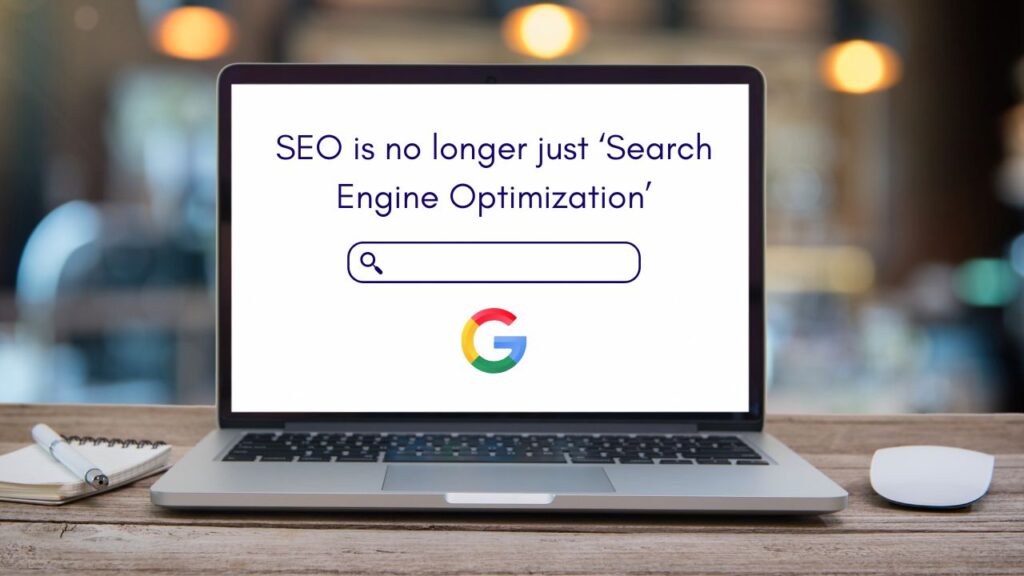I still remember a time when SEO was synonymous with Google rankings. Back then, getting your website to rank on the first page of Google felt like the ultimate achievement. But as the digital world evolved, I realized something critical: people are no longer searching exclusively on Google or Bing. Instead, they’re turning to a variety of platforms, each with its own search functionalities. The way we search has fundamentally changed, and if we don’t adapt, we risk falling behind.
For years, we’ve focused on optimizing websites for traditional search engines. But what about the searches happening on social media, shopping platforms, AI tools, or even podcasts? If we want to truly connect with our audience, we need to rethink SEO entirely.
Key Takeaways
- SEO now stands for “Search Everywhere Optimization,” not just “Search Engine Optimization.”
- People are searching across multiple platforms, including social media, shopping websites, and AI tools.
- Adopting a holistic SEO strategy ensures greater visibility, traffic, and conversions.
- Optimization isn’t limited to Google; it spans traditional search engines, social media platforms, shopping sites, AI tools, and more.
- By optimizing across all these channels, brands can tap into untapped opportunities and stay ahead of the competition.
Why ‘Search Engine Optimization’ is No Longer Enough

The digital landscape has diversified. Let’s break down why traditional SEO is no longer sufficient:
The Rise of Social Media Search
Consider this: how often do you search for a restaurant’s reviews on Instagram instead of Google? Platforms like TikTok, Instagram, Facebook, and LinkedIn have robust search algorithms that deliver content tailored to user preferences. Whether it’s discovering new products or finding expert advice, social media is the new search hub.
Shopping Platforms Are Their Own Ecosystem
Amazon and Flipkart are no longer just e-commerce giants—they’re powerful search engines. Shoppers search directly on these platforms for product reviews, comparisons, and recommendations, bypassing traditional search engines entirely.
The AI Revolution in Search
Tools like ChatGPT and Bard are redefining how people seek information. AI-driven searches provide conversational, tailored responses—making them a popular choice for users looking for personalized insights. With integrated web search capabilities, these tools are becoming direct competitors to Google.
Underrated Search Channels
Podcasts, forums, and voice search remain untapped goldmines. Imagine the value of optimizing your content for voice assistants like Alexa or ensuring your podcast metadata aligns with popular search terms.
What is ‘Search Everywhere Optimization’?
To thrive in 2025 and beyond, we need to embrace “Search Everywhere Optimization.” This strategy involves building an organic presence across every platform your audience uses. It’s not about abandoning Google—it’s about expanding your reach.
Benefits of Search Everywhere Optimization
- Boosted Brand Visibility: Reach potential customers wherever they’re searching.
- Higher Traffic: Drive audiences from multiple sources, not just traditional search engines.
- Increased Conversions: Tailor your content to different platforms for better engagement and sales.
The Five Key Categories to Optimize For

1. Traditional Search
Google, Bing, and Yahoo still play a critical role. Optimize your website for:
- Relevant keywords.
- High-quality content.
- Backlinks.
- Technical SEO.
2. Social Search
Platforms like Instagram, Facebook, Pinterest, and TikTok require unique strategies:
- Use platform-specific hashtags.
- Optimize captions and bios with keywords.
- Engage with your audience to boost visibility.
3. AI Search
AI tools are quickly gaining popularity. Here’s how to optimize for them:
- Provide detailed, factual content AI can draw from.
- Use structured data to make your site easily scannable.
- Align content with conversational search queries.
4. Shopping Platforms
E-commerce optimization involves:
- Using high-converting keywords in product titles and descriptions.
- Leveraging user-generated content like reviews.
- Focusing on mobile optimization for seamless shopping experiences.
5. Underdog Channels
Forums, podcasts, and voice search deserve attention too. Optimize by:
- Including target keywords in podcast titles and descriptions.
- Engaging in forum discussions and linking back to relevant content.
- Ensuring your site is voice-search friendly by using conversational language.
Comparison of Traditional vs. Modern Search Channels
| Aspect | Traditional Search Engines | Modern Search Platforms |
|---|---|---|
| Primary Goal | Website rankings | Multi-platform presence |
| Examples | Google, Bing, Yahoo | Instagram, Amazon, ChatGPT |
| Optimization Techniques | Keywords, backlinks, meta tags | Hashtags, platform-specific SEO |
| Audience Interaction | Limited | High |
| Growth Potential | Established | Rapidly growing |
Practical Steps to Get Started
- Audit Your Online Presence: Assess where your audience spends their time.
- Create Platform-Specific Content: Tailor your approach for each channel.
- Leverage Analytics: Use tools like Google Analytics and social media insights to track performance.
- Stay Updated: Follow industry trends to adapt to new search behaviors.
- Experiment and Iterate: Test strategies and optimize based on results.
Inspirational Insight
“Adaptability is about the powerful difference between adapting to cope and adapting to win.” Success in the evolving SEO landscape requires embracing change and adopting new strategies to thrive.
FAQs
1. What is ‘Search Everywhere Optimization’?
Search Everywhere Optimization means building an organic presence across all platforms where people search for information, products, or services—not just on Google.
2. Why should I focus on social media search?
Social media platforms like Instagram and TikTok have powerful algorithms that connect users with content they’re interested in, making them essential for visibility.
3. Is traditional SEO still relevant?
Yes, traditional SEO remains important, but it should be part of a broader strategy that includes other search platforms.
4. How can I optimize for AI tools?
Create high-quality, factual, and structured content that AI can easily process. Focus on answering specific, conversational queries.
Conclusion
SEO is no longer just about search engines. It’s about being discoverable wherever your audience is looking. By adopting Search Everywhere Optimization, you can future-proof your strategy, boost your brand’s visibility, and unlock new opportunities for growth. The game has changed—it’s time to change with it.




